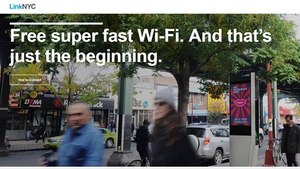
Through Sidewalk Labs, DOT's Smart City Challenge finalists will receive technical assistance and the winning city will get the cutting edge transportation coordination platform, FLOW.
By Andrea Fox, Gov1 Senior Editor
WASHINGTON, D.C. — On the heels of the U.S. Department of Transportation (DOT) announcing seven finalists for the $40 million Smart City Challenge, Transportation Secretary Anthony Foxx joined Alphabet’s Sidewalk Labs to announce a partnership where the finalists will all get technical support to address transportation coordination. But the winning city–either Austin, Texas; Columbus, Ohio; Denver, Colo.; Kansas City, Mo.; Pittsburgh, Pa.; Portland, Ore.; or San Francisco, Calif.–will also receive 100 high-tech kiosks related to the company’s developing transportation coordination platform, FLOW.
According to Foxx, the average commuter spends 40 hours per week stuck in transit delays, at a total cost of $121 billion each year. “To overcome these challenges, cities are going to have to find ways to foster the emergence of technologies that have the potential to transform transportation and improve access for disconnected communities,” says Foxx.
FLOW will use analytics from anonymized smartphone data, cameras–if the winning city allows it, data from third-party applications like Google Maps and Waze, and other inputs to collect data that can create a clearer picture of congestion and route usage. The goal is that FLOW will be used to increase access to public transit, and in real-time, improve the efficiency of parking and transit operations. Over time, FLOW data could also lead to commuter apps such as alerts to open parking.
The on-street kiosks fitted with Android tablets, which are similar to Sidewalk Labs’Link kiosks that are replacing public pay phones in the city of New York, will offer free Wi-Fi, updated transit information and more to give commuters without smartphones or data plans some mobile access.
In addition to using FLOW to measure traffic, respond to transit demands and pinpoint areas for congestion-reducing opportunities like bike share programs, DOT believes the kiosks can help address upward mobility challenges to poorer populations.
“We don’t often think about it, but transportation plays a crucial rule in connecting all Americans to employment, education, healthcare and other essential services. And the unfortunate reality is that many folks lack access to the reliable, safe and affordable transportation they need to reach these opportunities,” says Foxx.
"The answer can’t be to build more roads when we are struggling to maintain the ones we have,” says Dan Doctoroff, Sidewalk Labs’ chief executive officer. “We have to do better with what we have.”
According to Sidewalk Labs, it may take 1-2 years from the time a winning city is selected (this June) to install the 100 kiosks in 25 blocks of four key neighborhoods. The company is donating millions–though it says it’s hard to speculate now what the total will be–in technical assistance to work with the finalist cities and to the winning city in designing and implementing FLOW. According to its website, “Sidewalk manages the largest pool of capital in the world focused on urban innovation.”
Jon Romano, spokesperson for DOT, told Gov1 the agency has been approached by more than 300 firms offering partnerships with the Smart City Challenge, but has been selective in choosing partners “who share the same vision these cities share.”
Also for the 71 cities that did not make the second round of the Smart City Challenge, Romano says the DOT will follow-up with grant information that is specific to the solutions conceived in their individual proposals. He adds that DOT decided on the seven finalists, instead of five originally planned, due to the strength of the applications.
Copyright © 2024 GovGrantsHelp.com. All rights reserved.
